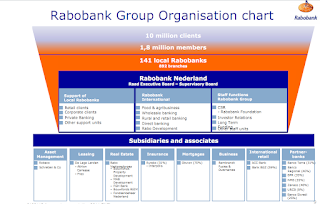Hoe neutraal is het IMF?
[Dit artikel lag lange tijd op de plank...]
In de economie zijn instituties belangrijk. De Centrale Banken zijn daarin het meest relevant en zichtbaar. Maar hoe zit het met een bedrijf / Instelling zoals het IMF?
Vooral belangrijk is misschien wel de voormalige directeur van het IMF, nu president van de ECB: Christine Lagarde.
[Directeur van het IMF. Op 28 juni 2011 werd Lagarde als eerste vrouw benoemd tot directeur van het Internationaal Monetair Fonds (IMF), ter vervanging van Dominique Strauss-Kahn. Zij nam deze positie op 5 juli 2011 in voor een periode van vijf jaar. In februari 2016 werd haar mandaat, vanaf juli, bij consensus door de raad van bestuur van het IMF voor vijf jaar verlengd. Ze had hierbij de steun van grote landen zoals de Verenigde Staten, Duitsland en uiteraard Frankrijk. Op 12 september 2019 legde zij haar functie bij het IMF neer.
Voorzitter ECB. Op 1 november 2019 volgde zij Mario Draghi op als voorzitter van de Europese Centrale Bank... Ook in deze functie was zij de eerste vrouw.
Invloed. In 2009 stond Lagarde op de zeventiende plaats in een door Forbes Magazine samengestelde lijst van de meest invloedrijke vrouwen ter wereld. Time Magazine rekende haar in dat jaar tot de top honderd wereldleiders. De Wall Street Journal plaatste haar in 2009 op de vijfde plek in een lijst van de beste bestuursvrouwen van Europa. (Bron: https://nl.wikipedia.org/wiki/Christine_Lagarde)]
The quota system. Each member of the IMF is assigned a quota, based broadly on its relative size in the world economy, which determines its maximum contribution to the IMF’s financial resources. Upon joining the IMF, a country normally pays up to one-quarter of its quota in the form of widely accepted foreign currencies (such as the U.S. dollar, euro, yen, or pound sterling) or Special Drawing Rights (SDRs). The remaining three-quarters are paid in the country’s own currency.
GOUD. Gold holdings. The IMF’s gold holdings amount to about 90.5 million troy ounces (2,814.1 metric tons), making the IMF one of the largest official holders of gold in the world. However, the IMF’s Articles of Agreement strictly limit the use of this gold. If approved by an 85 percent majority of total voting power of member countries, the IMF may sell or accept gold as payment by member countries but it is prohibited from buying gold or engaging in other gold transactions.
Uitlenen. The IMF’s lending capacity. The IMF can use its quota-funded holdings of currencies of financially strong economies to finance lending. The Executive Board selects these currencies every three months. Most are issued by industrial countries, but the list has also included currencies of emerging market economies. The IMF’s holdings of these currencies, together with its own SDR holdings, make up its own usable resources. If needed, the IMF can temporarily supplement these resources by borrowing
Ok, dat is de theorie. Maar hoe zit het nu echt? Wat is de echte functie van het IMF? Economic surveillance, lending en capacity development. Dat zijn de drie functies volgens de website. Surveillance... Een soort internationale politieagent.
... Een andere vraag is hoe Rationeel is het IMF? Misschien is die vraag nog wel belangrijker. In hoeverre spelen niet rationele factoren een rol bij de IMF besluiten en acties?
Vervolg (30 aug): Willem Middelkoop vertelt in een interview met Nico Inberg dat Belgie meer Stemrecht heeft bij het IMF dan Brazilië, maar dat blijkt niet zo te zijn:
MEMBER MILLIONS OF SDRS PERCENT OF TOTAL GOVERNOR ALTERNATE NUMBER PERCENT OF TOTAL
- Belgium 3 6,410.7 1.35 Pierre Wunsch Vincent Van Peteghem 65,566 1.30%
- Brazil 3 11,042 2.32 Fernando Haddad Roberto de Oliveira Campos Neto 111,879 2.22%
- ...
- China 3 30,482.9 6.40 Gongsheng Pan Changneng Xuan 306,288 6.08%
- .
- Germany 3 26,634.4 5.59 Joachim Nagel Christian Lindner 267,803 5.31%
- ..
- Netherlands 3 8,736.5 1.83 Klaas Knot Christiaan Rebergen 88,824 1.76%
- ...
- United States 3 82,994.2 17.43 Andy Baukol Vacant 831,401 16.50%



Reacties